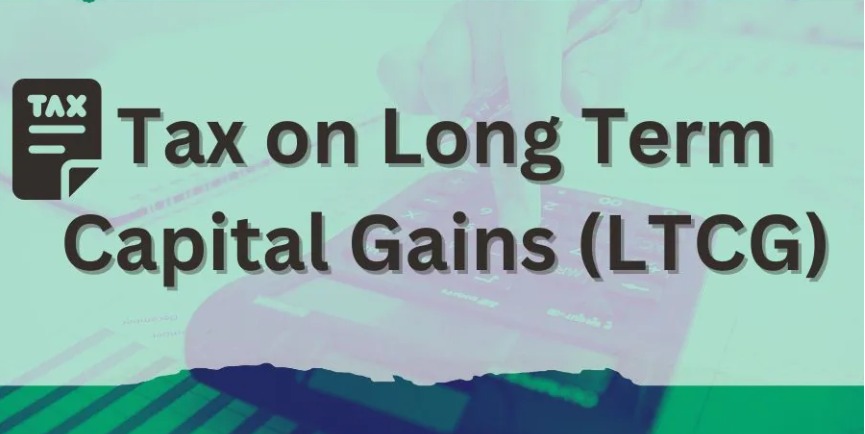The Indian real estate market presents a wealth of opportunities for investors, but navigating its tax landscape can be complex. Among the various tax implications tied to real estate transactions, the Long-Term Capital Gain (LTCG) tax stands out due to its significant impact on investment returns. LTCG tax is a crucial consideration for anyone who has held property for an extended period and is now looking to sell it. Understanding how LTCG tax works, its implications, and strategies for managing it can help investors make informed decisions and optimize their financial outcomes.
This blog will provide an in-depth exploration of LTCG tax on property, detailing its definition, the types of gains, the implications of recent regulatory changes, and practical tips for managing your tax liabilities. Whether you are a seasoned real estate investor or a first-time seller, this guide will equip you with the knowledge needed to navigate the complexities of LTCG tax effectively. By delving into the specifics of tax rates, recent changes, and strategies for minimizing tax liabilities, you will gain a clearer understanding of how to handle your real estate investments in the context of India’s tax laws.
What Exactly is Long-Term Capital Gain (LT G) Tax?
Long-Term Capital Gain (LTCG) refers to the profit made from the sale of an asset that has been held for a specified period, which varies depending on the type of asset. For real estate in India, an asset must be held for more than two years to qualify for LTCG treatment. This is distinct from Short-Term Capital Gain (STCG), where the asset must be held for a shorter duration, typically less than two years for real estate.
Also Read:- What Are The Government Taxes on Property Purchase in Mumbai
What Determines LTCG on Property?
LTCG on property is calculated as the difference between the sale price of the property and its indexed cost of acquisition. The cost of acquisition is adjusted for inflation through indexation, which helps in reducing the taxable gain by accounting for inflationary increases in the property’s value.
Example:
Consider you bought a property for ₹50,00,000 in 2015 and sold it in 2024 for ₹80,00,000. The indexed cost of acquisition would be calculated using the Cost Inflation Index (CII) published by the Indian government. Let’s assume the CII for 2015 was 240 and for 2024 is 350.
- Indexed Cost of Acquisition = (Cost of Acquisition × CII of Sale Year) / CII of Purchase Year
- Indexed Cost of Acquisition = (₹50,00,000 × 350) / 240 = ₹72,91,667
- LTCG = Sale Price – Indexed Cost of Acquisition
- LTCG = ₹80,00,000 – ₹72,91,667 = ₹7,08,333
How Are LTCG Tax Rates Applied to Property :
What Are the Current Tax Rates for LTCG on Property?
As of recent revisions, the LTCG tax rate for real estate has been adjusted to 12.5%. This is a significant change from the previous rate of 20%. This rate is applied to the net LTCG after adjusting for indexation.
Example:
Using the previous example with an LTCG of ₹7,08,333:
- Tax = LTCG × Tax Rate
- Tax = ₹7,08,333 × 12.5% = ₹88,541.63
How Does the Removal of Indexation Benefits Affect LTCG?
The removal of indexation benefits means that the cost of acquisition will no longer be adjusted for inflation. This change has a direct impact on the taxable gain, as the LTCG will be calculated based on the nominal cost of acquisition without inflation adjustment.
Example with Removal of Indexation Benefits:
If indexation benefits are removed, the cost of acquisition would remain ₹50,00,000.
- LTCG without Indexation = Sale Price – Cost of Acquisition
- LTCG = ₹80,00,000 – ₹50,00,000 = ₹30,00,000
- Tax = LTCG × Tax Rate
- Tax = ₹30,00,000 × 12.5% = ₹3,75,000
The removal of indexation benefits significantly increases the taxable amount and, consequently, the tax liability.
What Are the Options to Save on LTCG Tax?
Also Read:- Understanding the Removal of Indexation on Property Sales- LTCG (Long Term Capital Gain Tax)
How Can You Utilize Exemptions and Deductions?
There are several ways to save on LTCG tax, including exemptions and deductions under Indian tax laws:
Section 54: Exemption on Investment in Residential Property:
- If the LTCG is reinvested in purchasing a new residential property within two years of sale or constructing a new one within three years, you can claim an exemption on the amount reinvested.
Section 54EC: Investment in Bonds:
- Investing the LTCG amount in specified bonds issued by the National Highway Authority of India (NHAI) or Rural Electrification Corporation (REC) within six months of the sale can provide tax benefits.
Section 54F: Purchase of New Residential Property:
- If the entire sale proceeds (not just LTCG) are reinvested in a new residential property, this section offers tax relief. However, this is applicable only if you do not own more than one residential property at the time of sale.
How Do You Plan for Effective Tax Management?
Effective tax management involves strategic planning and investment. Consulting a tax advisor can help tailor strategies specific to your financial situation and investment goals. Consider the timing of your sale and reinvestment to maximize tax benefits and minimize liability.
What is Short-Term Capital Gain (STCG) Tax on Property :
How Is STCG Tax Different from LTCG Tax?
Short-Term Capital Gain (STCG) tax applies to gains from the sale of property held for less than two years. For STCG, the tax rate is higher, reflecting the idea that short-term investments are less favorable compared to long-term ones.
- STCG Tax Rate: The STCG on real estate is taxed according to the individual’s income tax slab rates, which can be as high as 30% plus applicable surcharges and cess.
Example:
If you sell a property held for 18 months with a gain of ₹5,00,000, the gain will be added to your total income and taxed according to your income tax slab rate.
Conclusion
Navigating the complexities of the Long-Term Capital Gain (LTCG) tax on property requires a thorough understanding of the current tax rates, regulations, and strategic planning opportunities. With the recent changes, including the reduction in the LTCG tax rate and the removal of indexation benefits, it is crucial for investors to stay informed and adapt their strategies accordingly. By leveraging available exemptions, making strategic investment decisions, and consulting with tax professionals, you can effectively manage your LTCG tax liabilities and enhance your investment returns.
In summary, whether you are dealing with LTCG or STCG, understanding the tax implications and utilizing available tax-saving provisions can significantly impact your financial outcomes. Stay proactive, plan your transactions carefully, and ensure you are well-versed with the latest tax regulations to optimize your real estate investments.
FAQs
What is the Minimum Holding Period for a Property to Qualify for LTCG in India?
- A property must be held for more than two years to qualify for LTCG tax treatment.
What are the Benefits of Indexation in Calculating LTCG?
- Indexation adjusts the cost of acquisition for inflation, reducing the taxable gain and thus lowering the tax liability.
How does the removal of indexation benefits impact my tax calculations?
- Without indexation, the taxable LTCG will be higher, leading to a greater tax liability.
Can I claim a deduction on LTCG if I reinvest in a new property?
- Yes, under Section 54, if you reinvest LTCG in purchasing or constructing a new residential property, you can claim an exemption.
What are the options for tax-saving investments under Section 54EC?
- Investments in specified bonds issued by NHAI or REC qualify for tax exemption under Section 54EC.
How does STCG tax differ from LTCG tax in terms of rates?
- STCG is taxed at higher slab rates based on your income, while LTCG is taxed at a lower fixed rate (currently 12.5%).
Is there a limit to the exemption amount under Section 54?
- The exemption is available on the amount reinvested in the new property. Any LTCG not reinvested will be taxable.
What happens if I sell the reinvested property before the holding period required for exemptions?
- If you sell the reinvested property before the required holding period, the previously claimed exemption may be reversed and taxed.
Can I claim multiple exemptions under different sections for the same LTCG?
- Yes, you can claim exemptions under different sections as long as you meet the conditions for each.
How Often do the Rules and Rates for LTCG and STCG Change?
- Tax rules and rates can change with each Union Budget, so it is essential to stay updated with the latest regulations and consult a tax advisor for current information.







